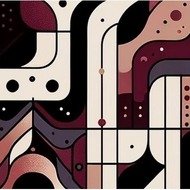
(View Complete Item Description)
Prosthetic memories are a form of public memory built in public sites. In this audio short, the old abandoned cinemas and their histories & ghosts are explored through the idea of prosthetic memories. What stories have been told in these abandoned buildings? What stories do they tell now?
Written & edited by May Santiago
Audio recordings & sound design by May Santiago
Archival audio of Dickson Experimental Sound Film (1894) courtesy of Edision Film Archive via Library of Congress, Washington, DC.
Archival audio of Jack’s Joke (1913) courtesy of Edison Film Archive via Library of Congress, Washington, DC.
Archival audio of “Aloma” from Aloma of the South Seas (1926) courtesy of Library of Congress, Washington, DC.
Archival audio of Universal Newsreel Volume 27, Release 550 (1954) courtesy of the National Archives and Records Administration, College Park, MD.
Archival audio of Atom for the Americas (1967) courtesy of the National Archives and Records Administration, College Park, MD.
Archival audio of Universal Newsreel Volume 40, Release 59 (1967) courtesy of the National Archives and Records Administration, College Park, MD.
Archival audio of La revolución nacionalista (1950) courtesy of Edgardo Huertas.
Archival audio of “Sara” performed by Quinteto Borinquen from August 3, 1916 courtesy of Smithsonian Folkways Recordings & Arhoolie Records.
Material Type:
Lecture,
Reading
Author:
May Santiago

